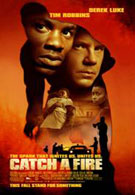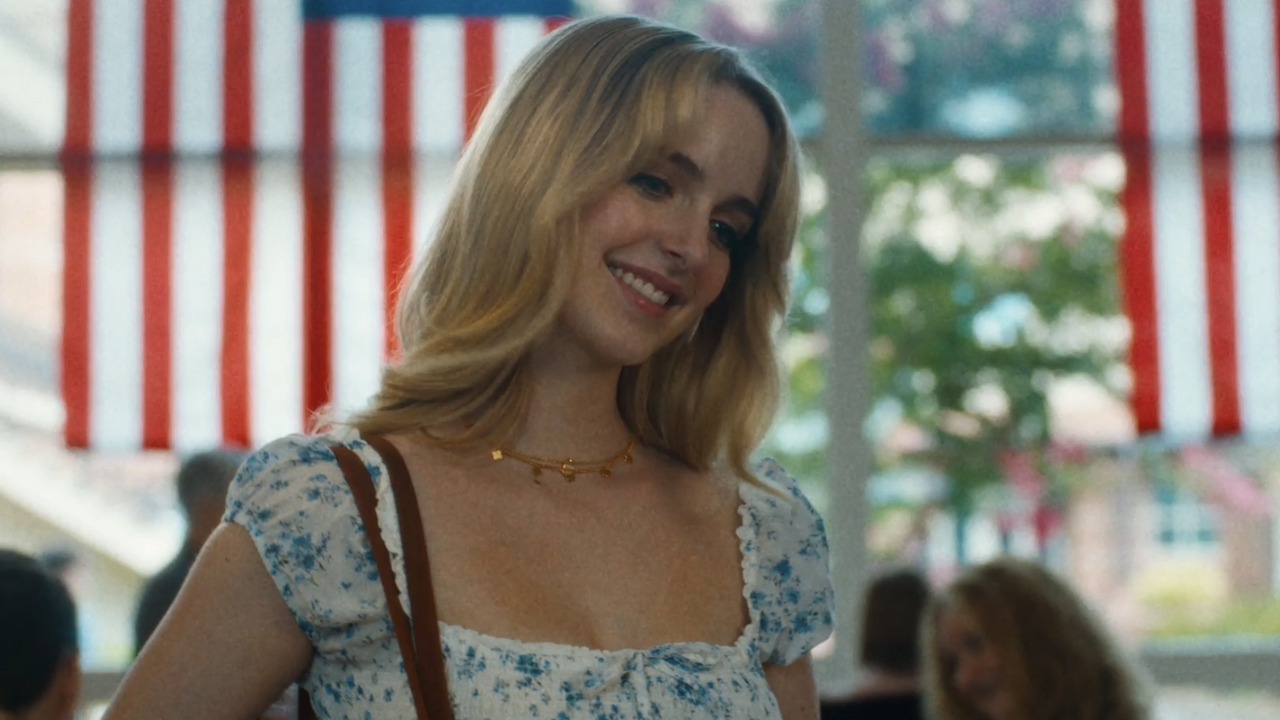What’s most refreshing about Catch a Fire isn’t its great performances or heart-rending story, it’s the way the film portrays Africans. Movies set on that continent so often reduce black Africans to fly-infested Sally Struthers victims that you forget there might be real people living there. Black African’s aren’t uneducated, half-starved, sub-humans. They’re families with the same concerns you have.
Catch a Fire shows that by telling the true story of Patrick, an upstanding black South African living in 1978’s oppressive regime of Apartheid. Patrick isn’t interested in politics, or the underground freedom fighter movement sweeping the country. He believes in caring for his family, and working hard. He has a good job, and he’s earned it. He coaches a local soccer team, he loves his wife. Catch a Fire lingers over his life, to give us a real sense of who Patrick is and where he stands. Patrick is a good and kind man, until he’s wrongfully accused of being a terrorist by the country’s anti-terrorism task force.
By the time his name is cleared, he and his wife have gone through weeks of beatings and torture. Many of Patrick’s friends and co-workers are dead, murdered at the behest of the anti-terrorism task force’s head Nic Vos (Tim Robbins). Patrick goes home, but discovers that he can no longer be comfortable sitting on his couch, sleeping in his bed, or simply earning a paycheck. He cannot live with letting things stand. He’s seen first hand the system’s injustice, and determined to make things right he abandons his family and joins the rebel group fighting to make South Africa a place for everyone.
Derek Luke is simply spectacular as Patrick, his evolution from pillar of the community to terrorist is brilliant. Tim Robbins steals scenes as South Africa’s anti-terrorist taskforce head, he’s twisted and sympathetic all at once. While Patrick sees him as a monstrous villain, the film shows things from his perspective too. For him, he’s only doing what he does to protect his family. To keep them safe, there’s no limit on who he’ll hurt or what he’ll do.
Ultimately, you get the sense that at first in some ways Patrick and Nic are the same man. Both men care deeply about their families, and love for that life is what pushes them. For Patrick it’s what kept him going to work in the morning and keeping his head down while the country erupts in flames. For Nic, the desire to protect his kids makes him a monster. But after his wrongful arrest, Patrick realizes there are more important things than simply keeping his family safe. He asks Nic what his family will say about him when he’s gone. What kind of man is he? Though he abandons them to fight South Africa’s oppressive government, his children can hold their heads high when they speak of their father. Nic keeps his family safe, but at what cost? Patrick decides that he is no longer willing to pay that price, and stands up to do what it right.
The movie falters a little when Patrick transitions from family man to rebel hero. Director Philip Noyce seems more comfortable with the movie as a drama than he does with it as a thriller. Still, Derek Luke’s amazing performance elevates the movie beyond any misstep, making Catch a Fire an effective film. There’s a deeper, politically motivated level here, one which examines what it takes to make a terrorist and might lead one to compare what happens to Patrick to what’s going on right now in Iraq. But whether or not you choose to examine it from that perspective is up to you. The movie works any way you want to see it.
Your Daily Blend of Entertainment News


